The Foresight for Food System Transformation (FoSTr) programme, led by Foresight4Food, is now two years into its journey of helping shape more sustainable, inclusive, and resilient food systems. With increasing uncertainties affecting global food systems—from climate change to economic challenges—the need for foresight and scenario analysis has never been more critical.

Running from 2022 to 2025, the programme is funded by the Dutch Ministry of Foreign Affairs through an IFAD grant. Based on the approach of the Foresight Framework, the programme focuses on supporting four key countries: Bangladesh, Jordan, Kenya, and Uganda.
Since its commencement, we have seen tremendous strides in advancing the key objectives of the FoSTr programme across multiple fronts. This blog highlights the progress and impact of the FoSTr programme and the exciting path ahead.
In-Country Impact: Strengthening Foresight Processes
In each of the focus countries, national foresight processes gained momentum, engaging a wide range of stakeholders, including government bodies, research institutions, and community representatives. In total, 403 individual stakeholders participated in in-country workshops across the four countries, contributing to meaningful conversations about the future of food systems.
Here is a quick overview of FoSTr programme’s progress in each of the focus countries:
Bangladesh – Strong government buy-in has been established, with collaboration from the Ministry of Food and other key players, all contributing to the national food system transformation agenda.
Jordan – Partnerships with the Ministry of Agriculture and other government entities have positioned FoSTr as a key advisor, particularly in driving forward the work of the newly established Food Security Council.
Kenya – Foresight analysis has been particularly active at both the national and county levels, with significant involvement from the Nakuru and Marsabit County governments.
Uganda – FoSTr is closely aligned with the Uganda Planning Authority, helping develop foresight tools for future food system planning.
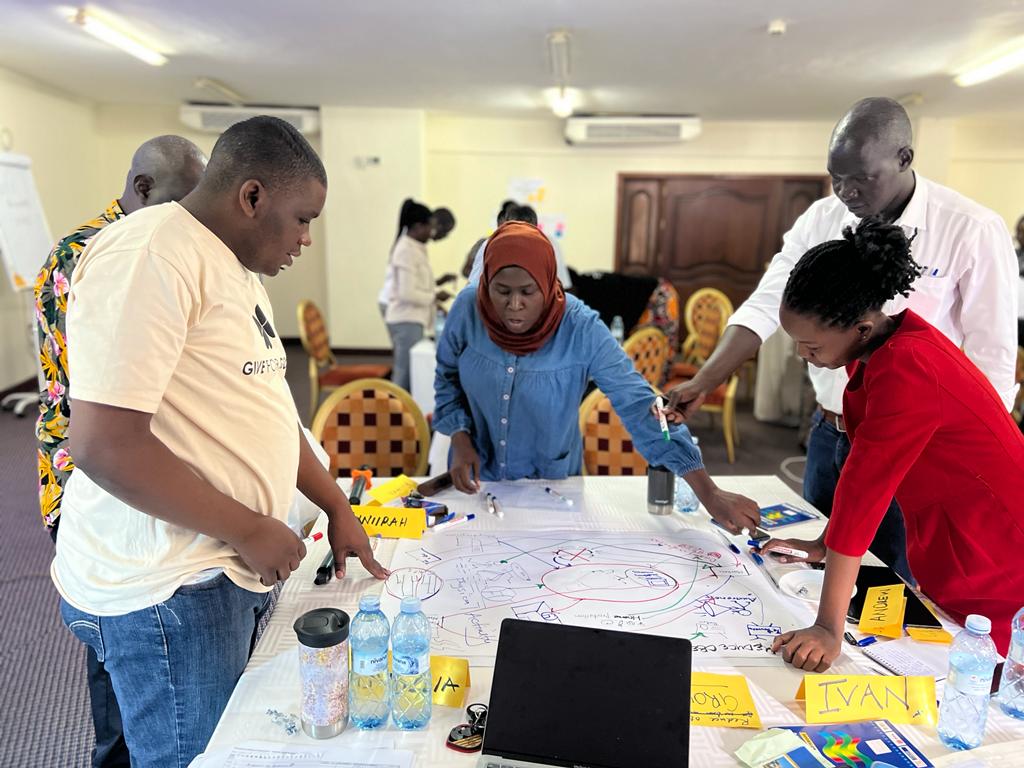
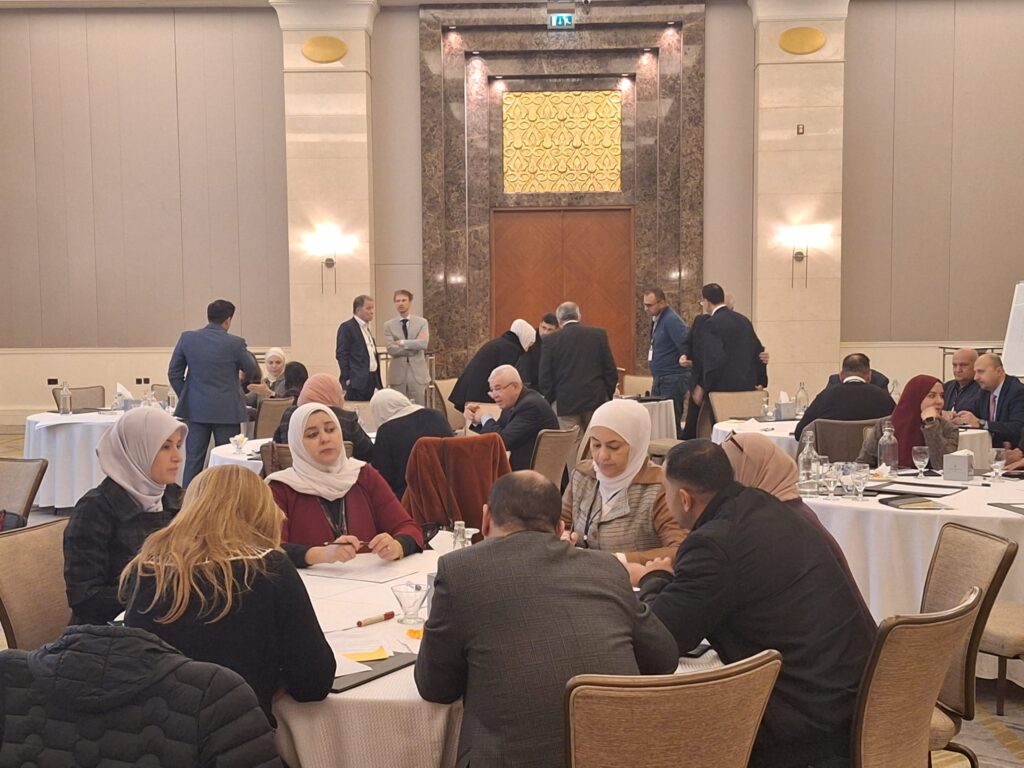
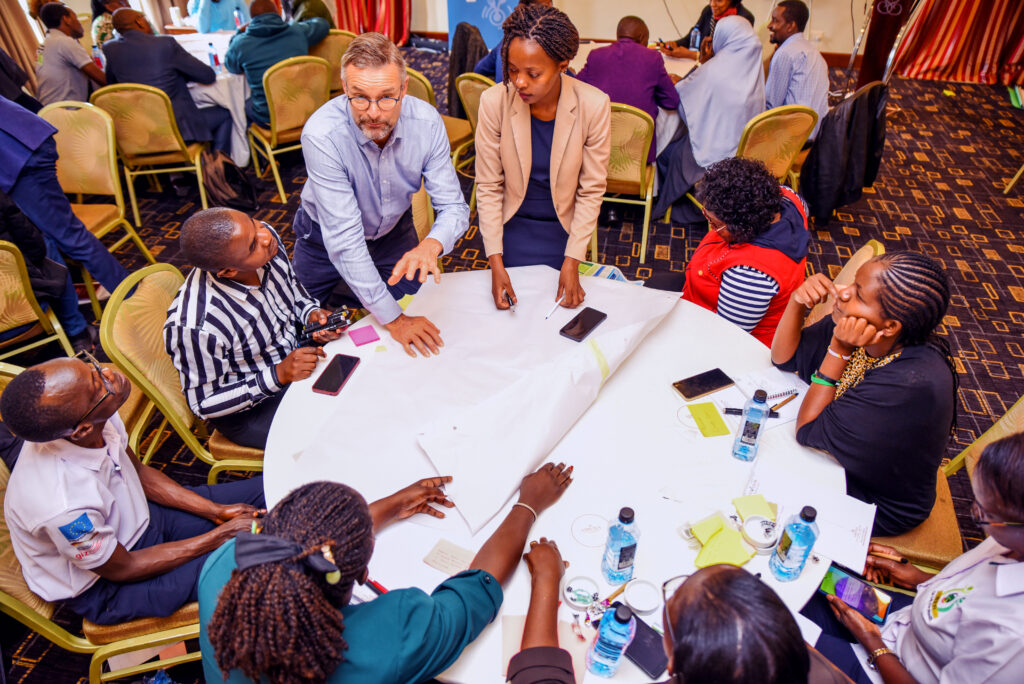
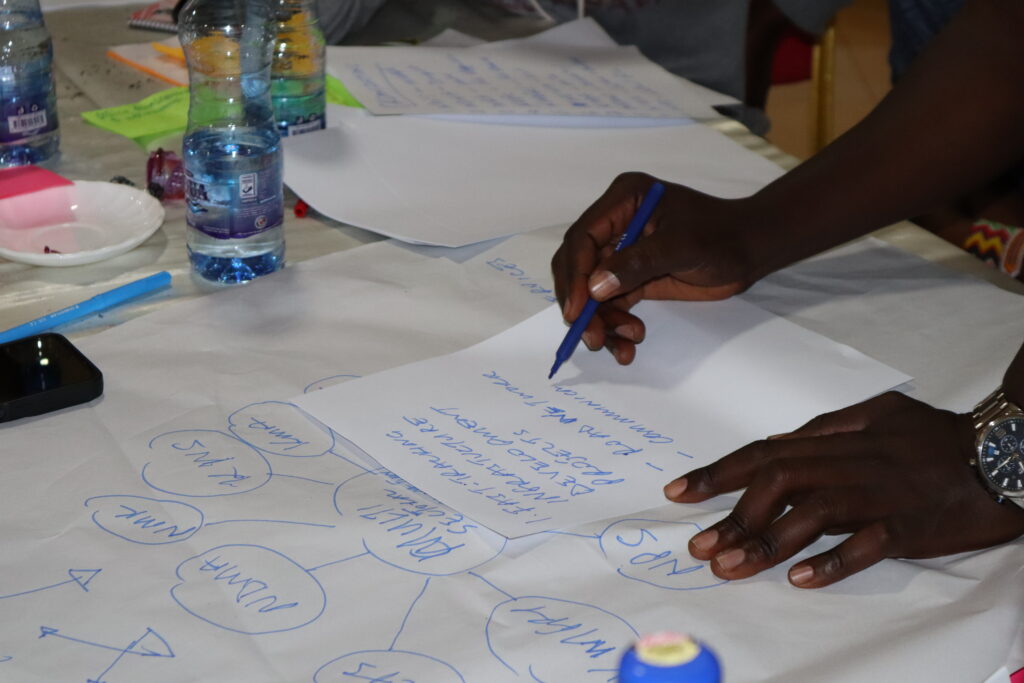


Global Collaboration: Building a Brokering Hub
On a global scale, FoSTr expanded its network of foresight and food systems practitioners, deepening collaboration across organizations like the Forum for Agricultural Research in Africa (FARA), the Global Alliance for Improved Nutrition (GAIN) in Bangladesh, and a number of renowned research institutes in the focus countries.
The work of FoSTr programme was very well-received at the 4th Global Foresight4Food Workshop in Dhaka, where more than 120 foresight practitioners from Asia, Africa, and Europe gathered to share insights on foresight methodologies and food system challenges.
Read also:
Using Foresight to Re-imagine the Future of Food Systems: Foresight4Food holds its 4th Global Meeting – by Jim Woodhill
In a highly interactive week, participants engaged in a masterclass on foresight approaches, shared their experiences and lessons, heard from thought-leaders on food systems and foresight, and identified ways of strengthening foresight practice in their own countries and regions…
A Start to the Foresight Process: Food Systems Maps
As a part of the foresight process, there is a need to have a collective understanding of the food system in different contexts. Hence, the Foresight4Food FoSTr team in collaboration with our facilitators and research partners in each focus country, created comprehensive food systems reports mapping the dynamics, trends, drivers, and activities within the food system.
These Food System Maps offer an initial snapshot of the current food system status in the focus countries and are intended to inform a more comprehensive foresight process. As the dynamics, trends, drivers, and activities within the food system continually change, these reports welcome ongoing reflection and discussion.
Knowledge Base
FoSTr also played a vital part in strengthening the Foresight4Food Resource Portal, which provides access to Foresight Studies, key data around Food System Drivers and Outcomes, a database of Foresight Initiatives, and other academic literature that helps food systems practitioners develop better Foresight Models.
The Foresight4Food Resource Portal is regularly updated with the latest research and emerging studies as well as products and resources that come out of different programme activities.
Read also:
The Complexity of Global Drivers of Food System Transformation – by Bhawana Gupta
The global food system needs to be transformed. It needs to deliver better health and improved livelihoods while protecting the environment and minimizing negative social impacts. However, there are many interconnected factors playing a role. Food Systems are complex…
Overcoming Challenges
Like any ambitious programme, FoSTr encountered its share of challenges. These included navigating political instability in some focus countries. Meanwhile, navigating the political economy of food systems—especially where entrenched power dynamics and vested interests are at play—required FoSTr to strike a delicate balance between supporting ongoing policy processes and introducing more transformative ideas for change.
The Way Forward
As the Foresight4Food FoSTr programme enters its third and final year, several key objectives will guide the remaining activities:
Brokering Foresight Processes: Continue to build connections with national stakeholders and existing initiatives, ensuring that foresight insights are integrated into policy-making and planning processes.
Capacity Building: Organize intensive face-to-face training workshops to further enhance foresight facilitation skills and broaden participation from underrepresented groups, including the private sector and youth.
Scenario Analysis and Policy Recommendations: Complete the ongoing scenario analyses and translate these into clear policy recommendations that will guide national food system transformation agendas.
Sustaining Momentum Beyond 2025: Establish sustainable communities of practice that can continue to drive foresight activities beyond the programme’s official end.
Conclusion: A Transformative Journey
In an era where global food systems are under immense pressure due to climate change, population growth, and shifting socio-economic landscapes, forward-thinking approaches are critical to ensuring food security and sustainability.
The Foresight4Food FoSTr programme has made significant headway in its mission to advance food system foresight processes in Bangladesh, Jordan, Kenya, and Uganda while building a broader global network of foresight practitioners. As we look ahead to the final year, the focus will be on translating foresight insights into action, empowering national stakeholders, and ensuring that the work of FoSTr continues to have a lasting impact on food systems worldwide.
Bonus: FoSTr Facilitators Insights
As the Foresight4Food FoSTr programme continues to foster systemic change in global food systems, the programme facilitators will be sharing their observations on the work and progress of FoSTr programme in their respective countries through insightful blogs. Watch this space and our social media channels for more updates.
By Zoe Barois
Over the past year, the Foresight4Food Foresight for Food System Transformation – FoSTr team and our country partners have begun a foresight process in Jordan, Uganda, Kenya, Bangladesh, and Niger to support national food system transformation. As an initial step, a collective understanding of the food system in different contexts was needed. Hence, the Foresight4Food team in collaboration with our facilitators and research partners in each focus country, created comprehensive food systems reports mapping the dynamics, trends, drivers, and activities within the food system.
Being a lead on food system mapping, I’m sharing my reflections on the process in this blog.
We started with a scoping phase using the Foresight4Food foresight framework, which allows for flexibility and contextual adaptation. This phase involved identifying key stakeholders, understanding their interests, and assessing current and future concerns.
Our next goal was to foster a shared understanding of the food system’s key dynamics, outcomes, drivers, and activities to identify trends and uncertainties. This collective understanding forms the foundation for a participatory process using foresight and scenario analyses to support meaningful food systems change.
The second step, system mapping, was done in collaboration with country facilitators and research teams. We used the Foresight4food framework to identify key food system outcomes, activities, and drivers, considering their interaction with the broader environment. Data were compiled from national and global sources and generated through participatory workshops.
In addition to providing an overview of current status and trends, we conducted a deeper analysis using causal loop diagrams created with research partners during workshops. This approach helped identify trade-offs and synergies, informing actions to improve food system outcomes. We also noted recurring patterns that affect feedback loops, further clarifying the system’s structure.
These reports offer an initial snapshot of the current food system status and are intended to inform a more comprehensive foresight process. As the dynamics, trends, drivers, and activities within the food system continually change, these reports welcome ongoing reflection and discussion.
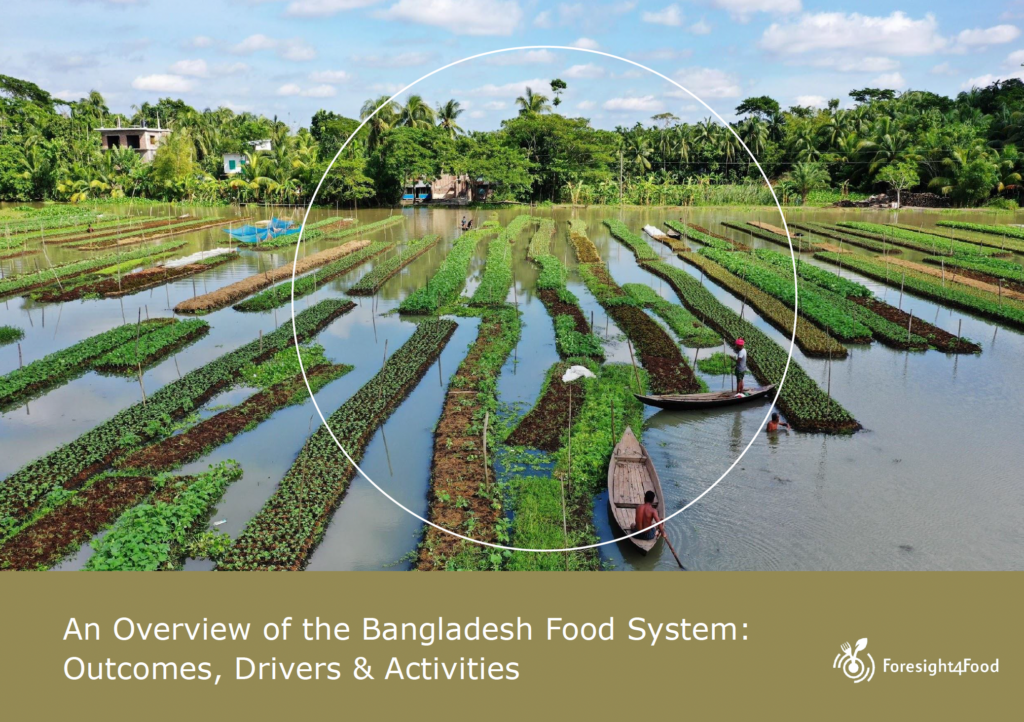
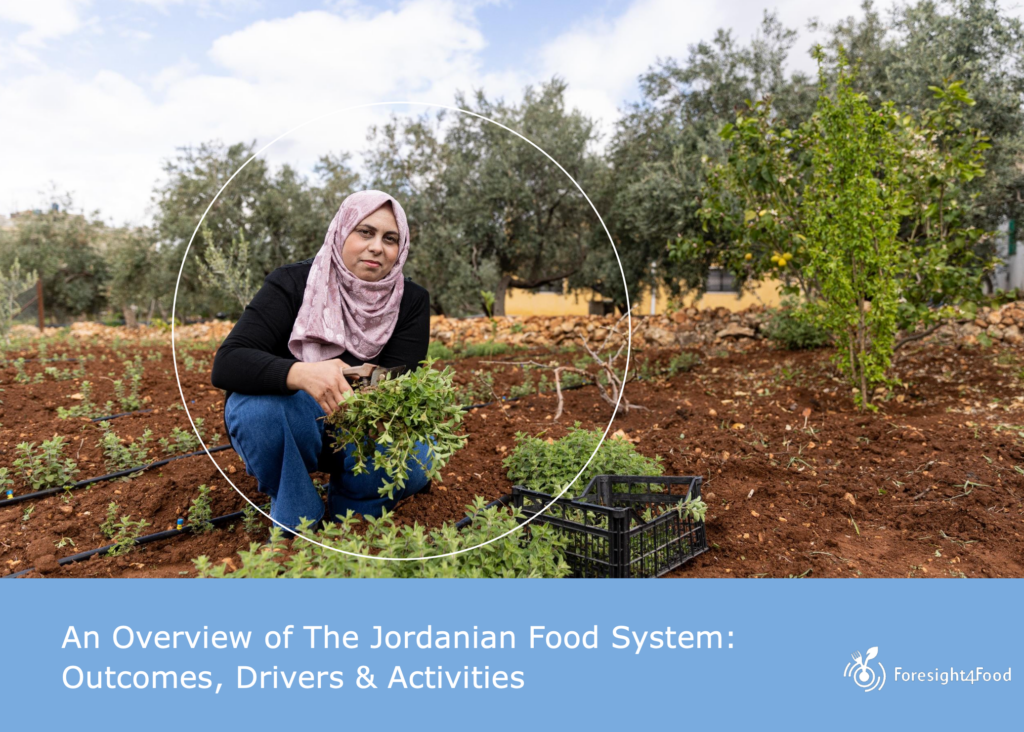
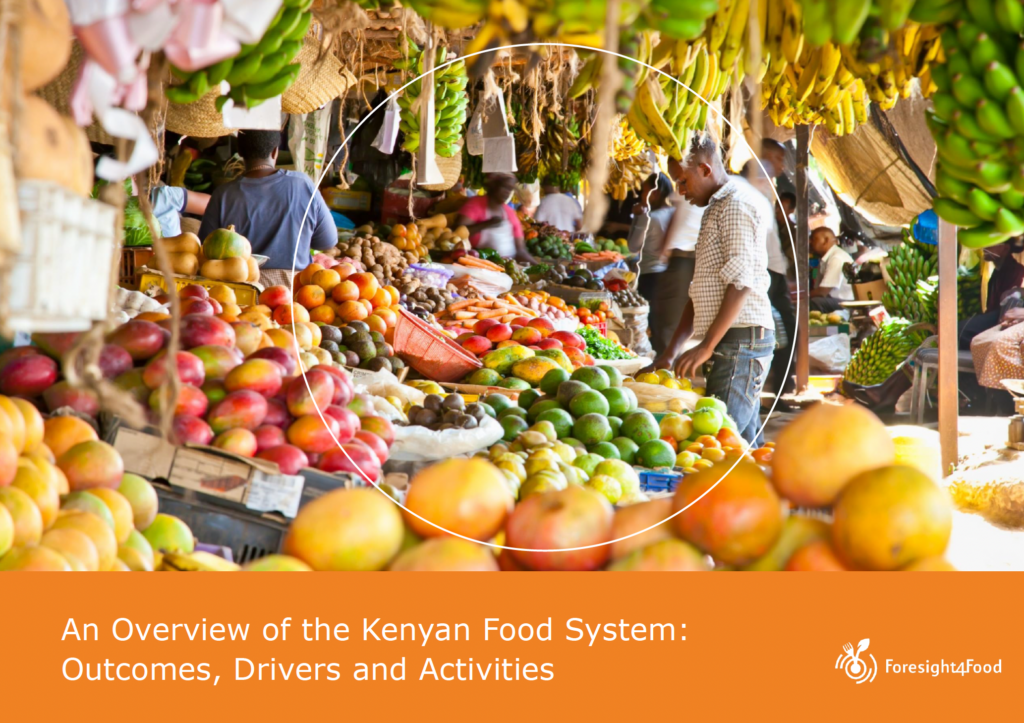
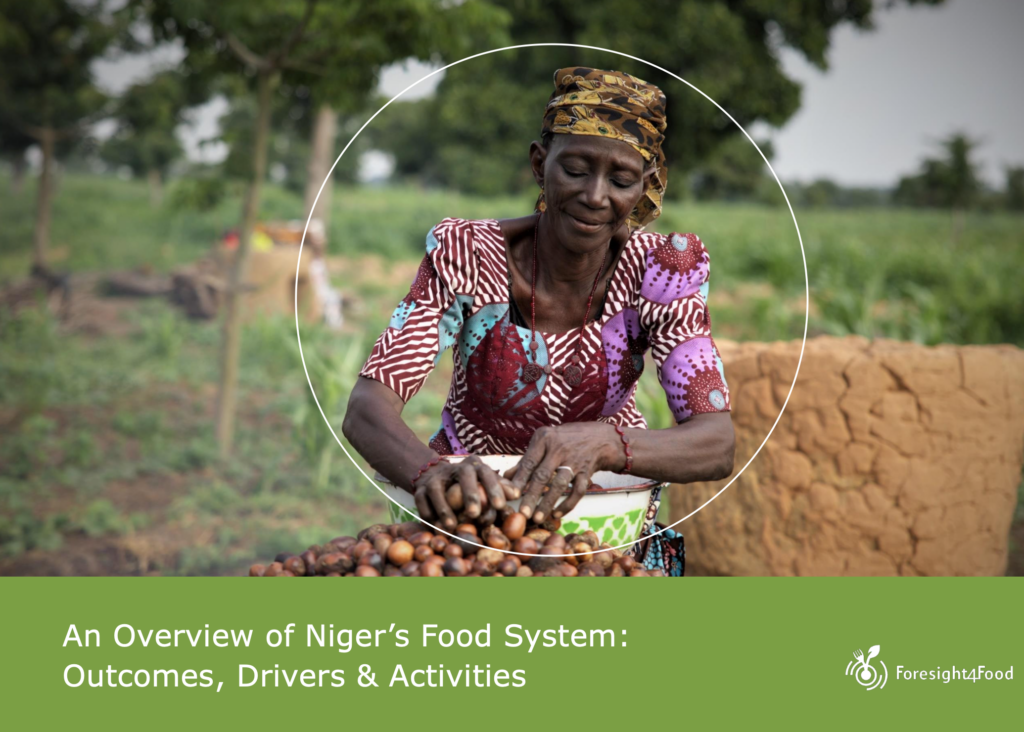
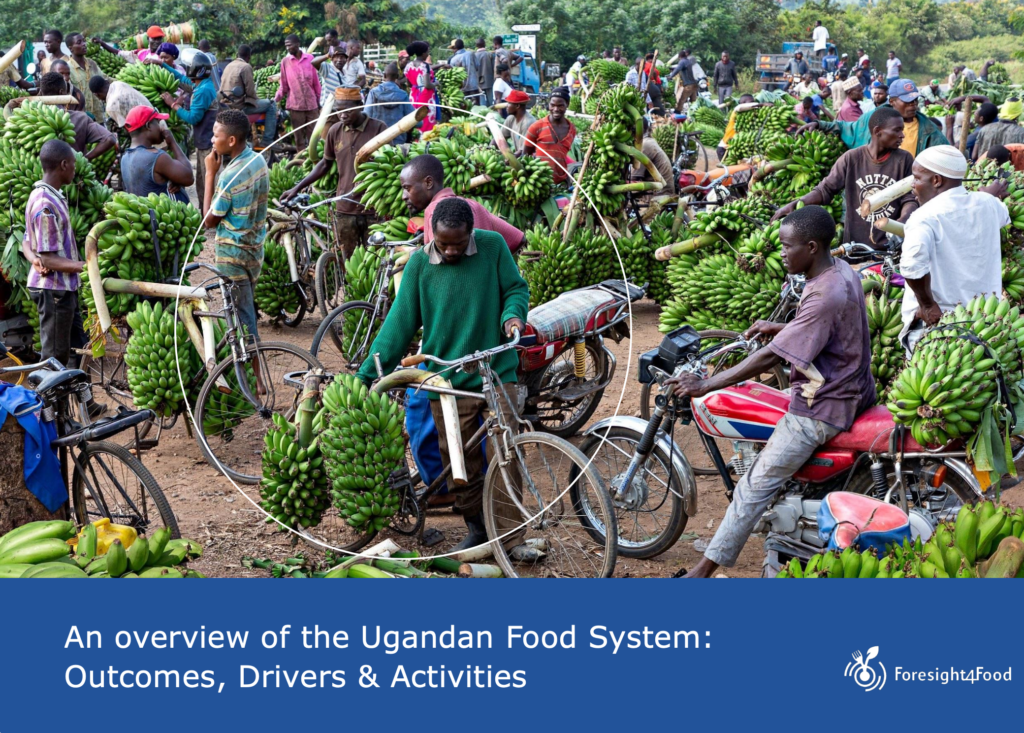
Read and download reports
An update on a two-part IFSTAL training course held at Makerere University
Bring together 26 individuals drawn from university students, academics and professionals working across the food sector in Uganda and what do you have? The kernel of a powerful network to help tackle malnutrition in country in all its varied forms.
Equipping participants with the skills to become food systems thinkers was the aim of a two-part training course delivered by Interdisciplinary Food System Teaching and Learning’ programme (IFSTAL) in collaboration with Makerere University, Kampala.
Malnutrition is the new normal
Despite the emergence of food systems approaches to address food insecurity in the content of other SDGs, malnutrition in Africa is becoming the ‘new normal’. This is down to a lack of skills across the policy and practice workforce to tackle food system challenges in the necessary integrated manner.
Fixing systemic problems across the food sector while enhancing livelihoods needs interdisciplinary systems thinkers. The lack of sufficient food systems training – and hence skills in the workforce – is a major impediment. This is partly due to university curricula being ill-equipped to provide the necessary interdisciplinary food systems training for students who will move on into the food sector, and partly due to weak networking across the sector itself.
Creating skills for change
Generously supported with a grant from the Open Society Foundations, the course was planned in two parts. Part 1 held in January 2020, covered basic food systems approaches. Giving participants time to reflect on the first part in their work contexts, Part 2 was designed to follow three months later, covering system change and foresight. Covid-19 intervened, which meant Part 2 was delivered in late March 2020, exactly two years behind schedule.

Building on seminars on food systems dynamics and systems thinking, the course was highly interactive, with participants engaging in group exercises to develop skills as delivered in short introductory presentations.
Applied skills
Part 1 was very well received – as shown in the results of a post-course survey (Figure 1). Recognition of the importance of stakeholders and having the tools to integrate wider stakeholders into planning was valued by participants, as was the the style of training with its emphasis on participation and knowledge sharing. There was also clear demand for further understanding of food systems and systems approaches, a recognition of their importance of applicability, and the benefit of acquiring practical and useable methods.
When it came to the most useful elements, comments included “Understanding how to involve different stakeholders when proposing new strategies, e.g. stakeholder mapping”, “’Rich Pictures’ helped me to improve my understanding of complex problems”, and “Soft skills, such as communication, group dynamics, etc”.

Lasting impact
Part 2 training included SWOT analyses of current interventions to address food system issues, backcasting practice, and introduced foresight and scenarios methodology. Participants drew on their different areas of expertise and engaged in collaborative problem solving. They were also encouraged to engage in reflective discussion throughout on food system challenges and the methodologies shared in the training.
Two years on from the initial session, a survey conducted during Part 2 (Figure 2) provided information for a pedagogic analysis of Part 1, showing the lasting benefit to participants: “I have incorporated some ideas into the courses that I teach, and have also borrowed some ideas to feed into a research grant application”, “The whole idea of food systems has helped me in my service delivery which involves dealing with a lot of chemicals which affects the farmers, the environment, and the final consumers of the food” and “Proper planning and evaluation of my business goals through use of the swot analysis and back casting methods”.
Future activity
Despite the two-year delay, it was particularly pleasing that all but four of the Part 1 cohort returned for Part 2, supporting their Part 1 survey comments.
Deemed a success, the overall project has provided a clear indication of the demand for food systems thinking and practice among a varied group of academics and professionals. Further food systems training is planned in collaboration with RUFORUM and the Foresight4Food programme.
Dr John Ingram is the leader of the Food Systems Transformation Group at the Environmental Change Institute, University of Oxford.
Figure 1: Likert Scores from Survey Results January 2020

Figure 2: Pedagogic Survey Results March 2022
On scale of 1-5, 5 being greatly, how much do you think systems thinking has changed the way you think about food systems?
